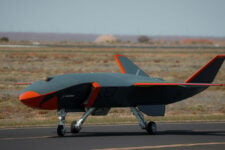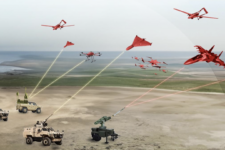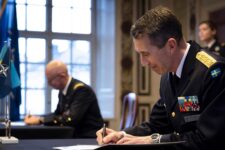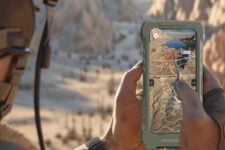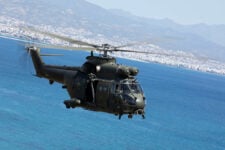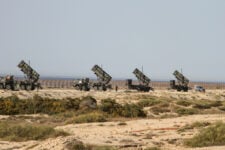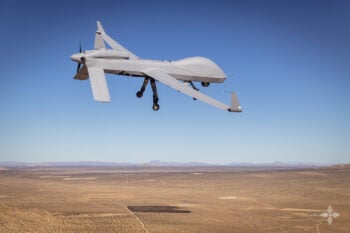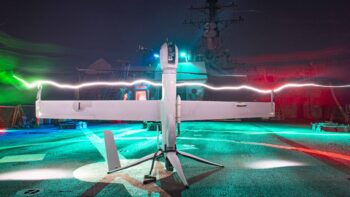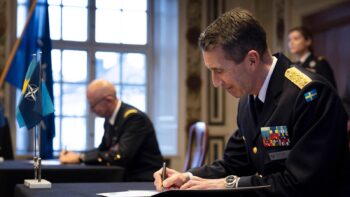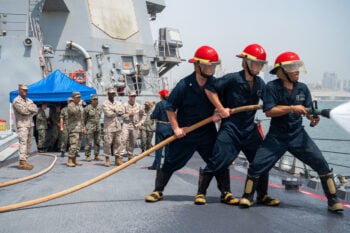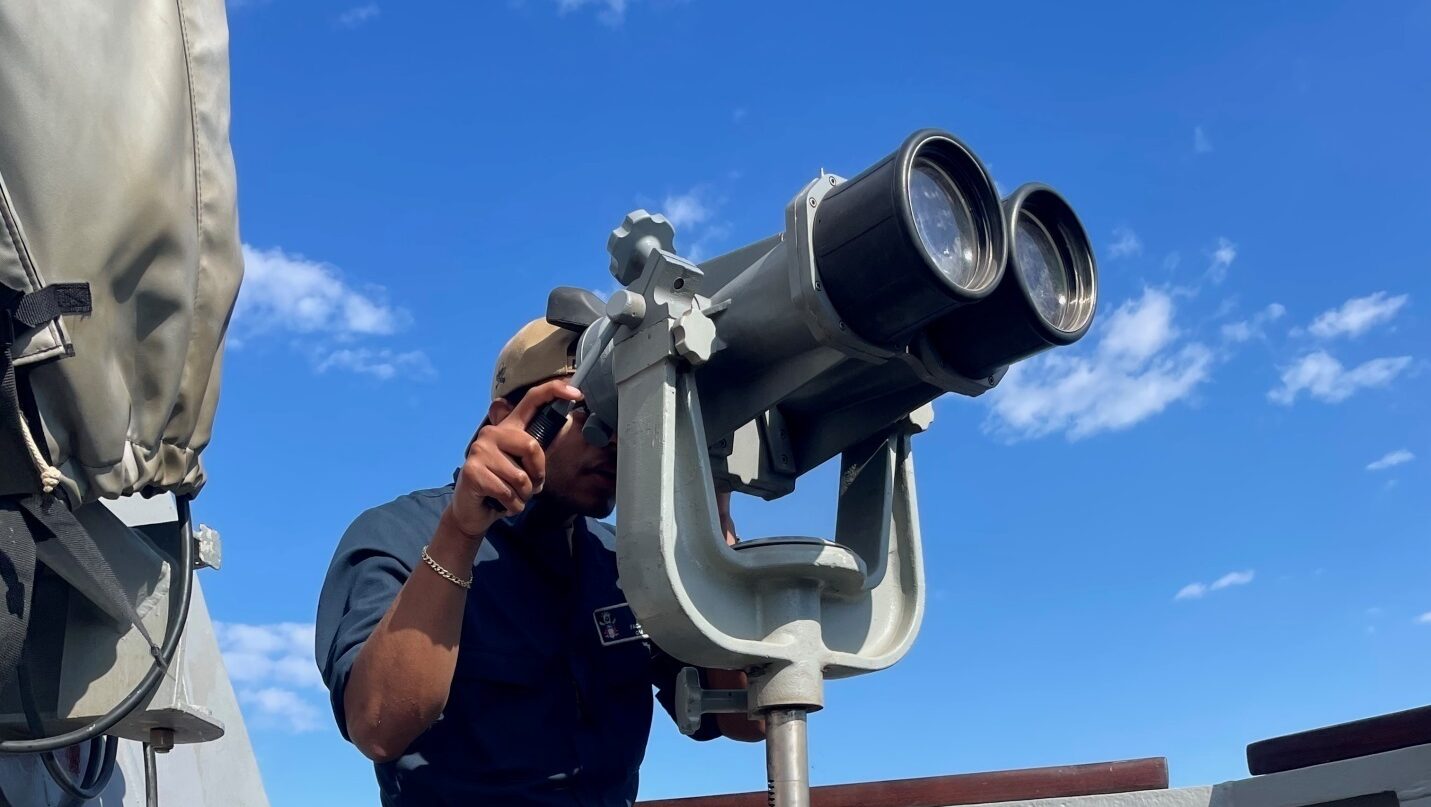
Quartermaster Seaman Willie Fagan peers through “big eyes” aboard guided-missile destroyer USS Truxtun (DDG 103) while transiting the Red Sea, Dec. 26. (U.S. Navy photo by Lt. Rebecca Speer)
BEIRUT — In a rare move, Houthi rebels launched an unmanned surface vessel “packed with explosives” into the Red Sea that detonated but did not damage any ships, according to the US military.
“The latest [attack] was early this morning when a Houthi one-way attack unmanned surface vessel, or USV… made it to international shipping lanes. Fortunately, there were no casualties and no ships were hit,” Vice Admiral Brad Cooper, commander of the international Combined Maritime Forces, told reporters today.
Cooper said the “low-profile” USV came within a “couple miles” of merchant ships and US Navy ships. He declined to say how the USV detonated. “We all watched as it exploded. No more details on that for right now,” he said.
Cooper, who is also head of the US Navy’s Bahrain-based 5th Fleet, said it was the first time the Houthis have used an unmanned surface vessel in the past couple months, though the group is known to have employed them in years past.
RELATED: Navy to seek industry help on countering ‘cross-domain’ drone attacks
Mostly since Hamas’s attack on Israel on Oct. 7, Houthis have joined in by launching missiles and waves of aerial drones from their territory in Yemen at merchant vessels and in the vicinity to US warships, including 25 attacks on merchant ships since Nov. 18 alone, according to Cooper. He said the US and its allies have “fired down 61 drones and missiles combined” since mid-October.
In recent days the US has made a high-profile push to draw international support for protecting Red Sea shipping lanes, most notably through a 20-plus nation initiative called Operation Prosperity Guardian. Today Cooper emphasized that the effort is defensive in nature, and said he expected more countries to sign on.
“Our assessment is that 55 nations have direct connections to the ships who have been attacked,” he said, adding that the Houthi threat was an international problem that requires an international solution.
RELATED: Why Saudi Arabia and the UAE may sit out new Red Sea security initiative
Several major shipping firms have suspended travel through the Red Sea, opting instead to take a longer route around the southern tip of Africa. Cooper explained that for those that remain, at times they approach a “choke point” and often must travel in “very narrow lines of travel near each other.”
That, he said, coupled with the fact that Houthi missiles often miss their targets, means that any ship could be in danger, whether it was targeted or not.
“And clearly, as has been articulated by many, [this] must stop immediately,” Cooper said.
Cooper noted that prior to Operation Prosperity Guardian, the “naval presence in the Southern Red Sea was episodic at best, frankly, because it just wasn’t necessary.” He said that since the operation began, “several nations have committed to persistently patrol these waters,” namely, the US, UK and France that have five warships patrolling the southern Red Sea.
Cooper said that Greece and Denmark are participating in the operation, and their ships will arrive in the area “in a couple of weeks [to] complement that [effort].”
As for nations who are not participating — notably Saudi Arabia and the United Arab Emirates among others — Cooper said, “I really defer to them to answer on their behalf of their own perspective, that’s really national sovereignty decision. We’re respectful of that decision.”
Austin confirms ‘pause’ in bomb shipments to Israel
“We are assessing. We have not made any final decisions on this yet,” Defense Secretary Lloyd Austin said about a shipment of Boeing-made weapons to Israel. “But yes, there are some things we are taking a closer look at.”


